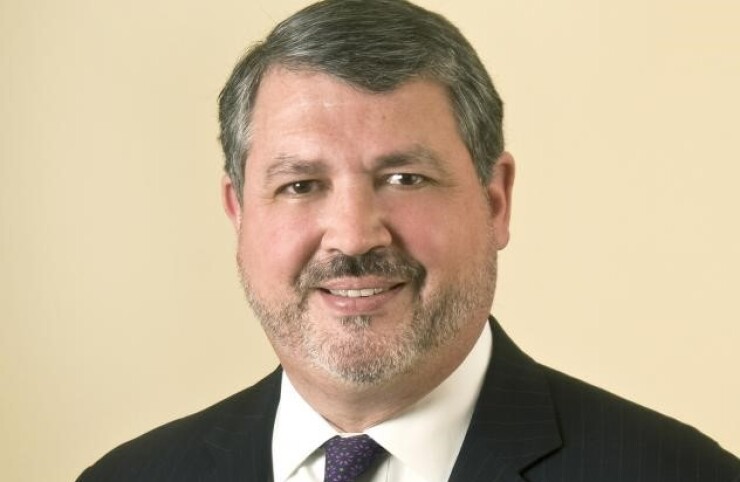The Metropolitan Transportation Authority could tap the Federal Reserve’s new liquidity program indirectly through New York State to help cope with its massive financial hit from COVID-19, its chief financial officer said.
“We’re having discussions with the state,” Robert Foran told reporters on Wednesday.
“Right now we cannot go to the program, that’s the

“We’re having discussions with the Federal Reserve but we can’t go directly. But we could go indirectly through either the state or the city or some other eligible borrower," he said. "They would then borrow, turn around and loan the money back to us, and then we could take advantage of the facility that way.”
The Fed on April 9 announced the program, under which the facility will purchase up to $500 billion of short-term notes, with the U.S. Treasury providing $35 billion of credit protection to the Fed using funds appropriated in the $2 trillion Coronavirus Aid, Relief, and Economic Security Act, or CARES Act signed on March 28.
Separately, the MTA intends to go to market with a bond sale next week, Foran said. Lead manager Jefferies LLC is lead manager for a $672 million sale of Series 2020C climate-bond certified transportation revenue green bonds.
The loss of farebox revenues because of stay-at-home orders and other social-distancing measures, combined with a surge in sanitizing expenses, has combined to pummel the MTA's bottom line.
Moody’s Investors Service, S&P Global Ratings and Fitch have downgraded the MTA’s transportation revenue bonds, its main borrowing vehicle. Kroll Bond Rating Agency placed the MTA's credits on watch for a downgrade. Moody’s rates the bonds A2 while Fitch and S&P rate them A-plus and A-minus, respectively. Kroll assigns its AA-plus rating.
The state-run authority, which operates New York City’s subways and buses, two commuter rail lines and several interborough bridges and tunnels, is one of the largest municipal issuers with roughly $45 billion of debt, including special credits.
Gov. Andrew Cuomo on Thursday ordered the MTA to craft a plan to disinfect all subway trains nightly. The extra cost for this undertaking is unknown for now, Chairman Patrick Foye said.
At least 96 MTA employees, mostly subway and bus workers, have died from the virus as of Wednesday.
Foran said the MTA had delayed a $920 million issuance planned for this week after the state issued a disclosure about pending aid cuts to localities. “The aid-to-localities reductions that will need to be taken in this Financial Plan may materially and adversely affect the financial position of the MTA, the City of New York, and other localities," the State Division of the Budget said in its
“We wanted to make sure we got that disclosure into our annual disclosure document, which is being filed right now," Foran said. The MTA, Foran added, is also supplementing the preliminary official statement document it issued last week.
An investor call is scheduled for Friday.
“We wanted to have this new disclosure out in the public before we had that call, and that will be available for investors later Friday and over the weekend,” Foran said.
According to the MTA’s April 17 disclosure, ridership on subways is down by 93% since the crisis escalated in March, and ridership on Long Island Rail Road and Metro-North Railroad have dropped 97% and 95%, respectively.
A report by consulting firm
Ahead of the first state budget adjustment expected in May, 11 transit and government
Reinvent Albany, Permanent Citizens Advisory Committee to the MTA, Straphangers Campaign and Tri-State Transportation Campaign were among the groups.
The state budget division will propose budget adjustments in May. Its director, Robert Mujica, is also an MTA board member.
According to data on the Municipal Securities Rulemaking Board's





